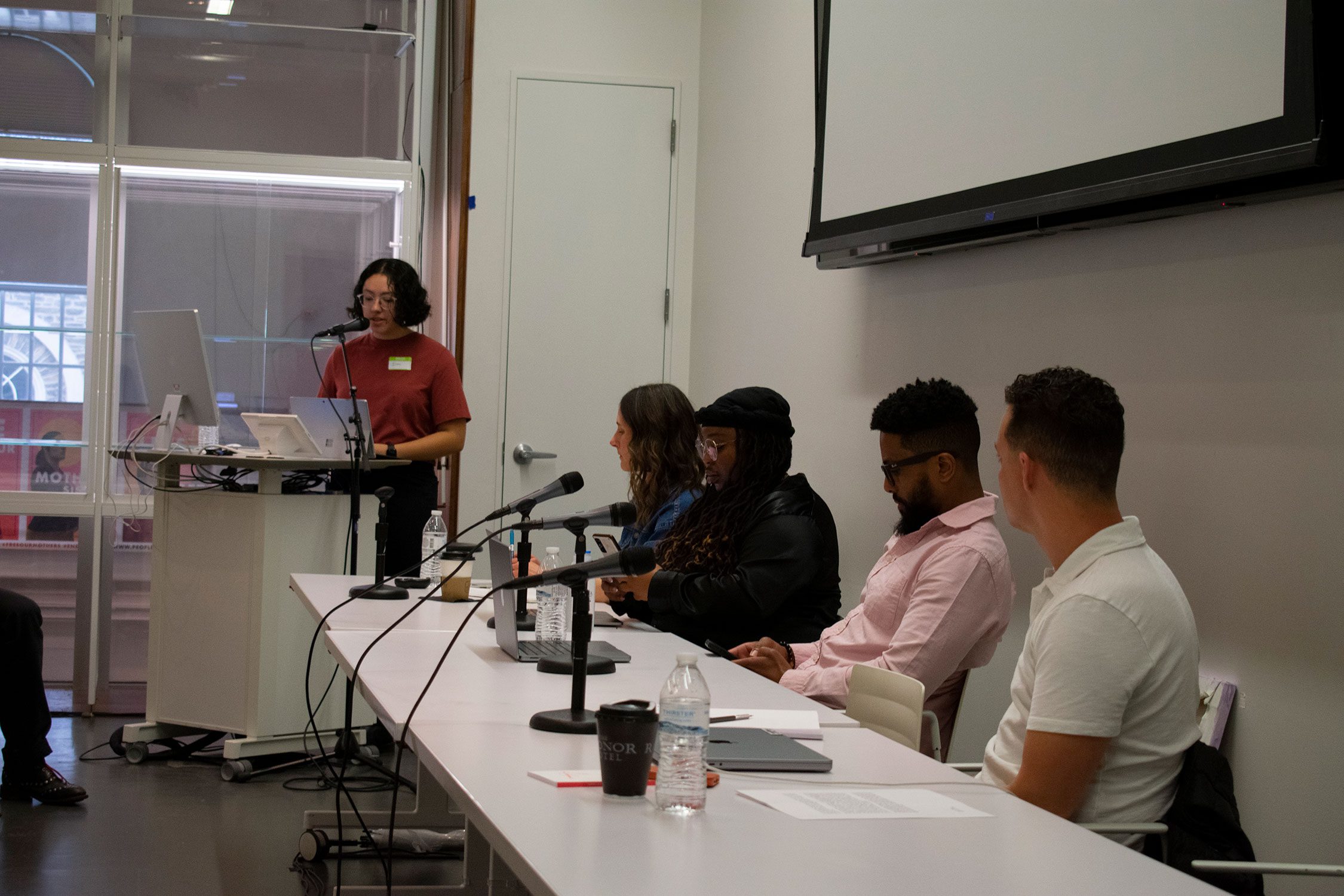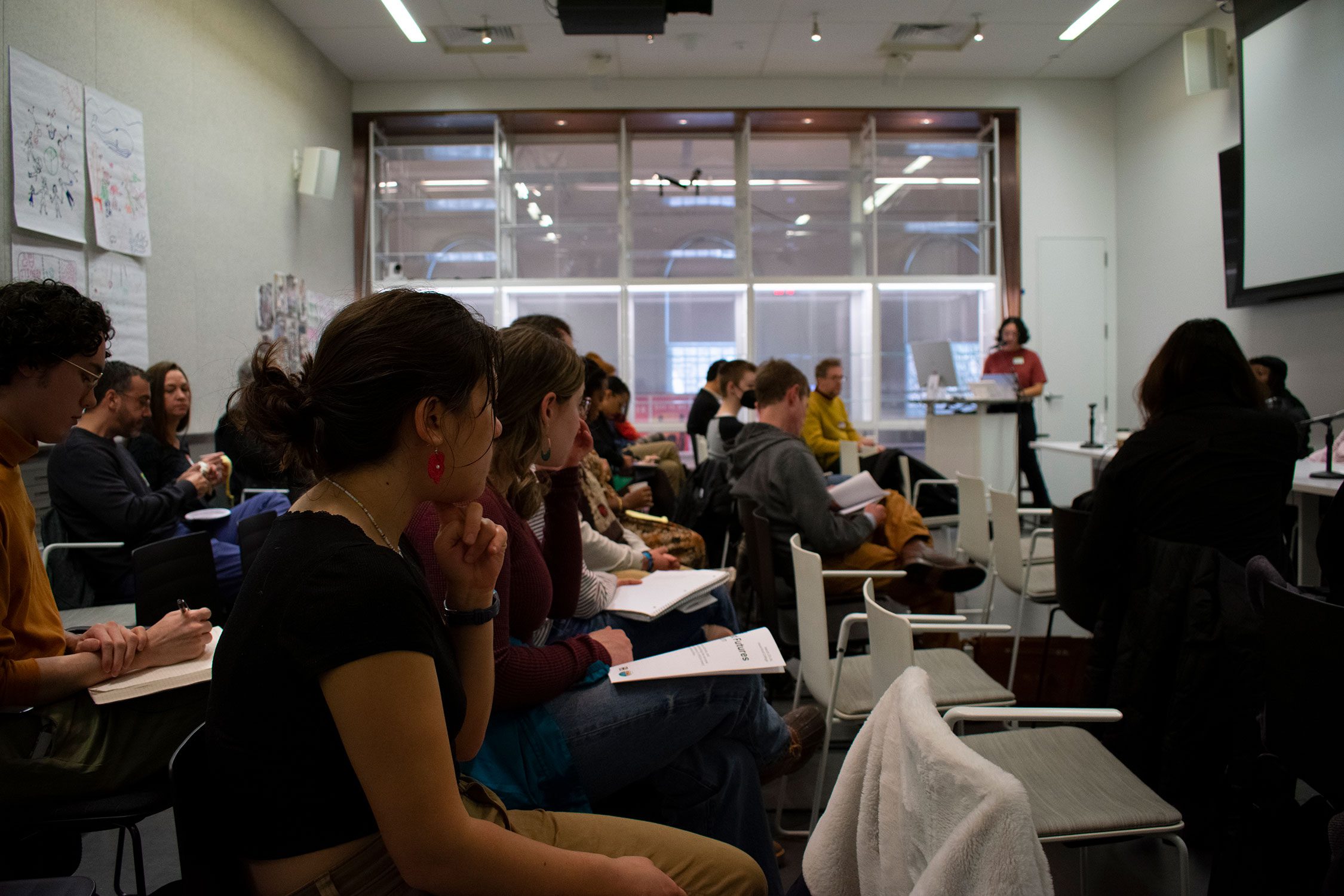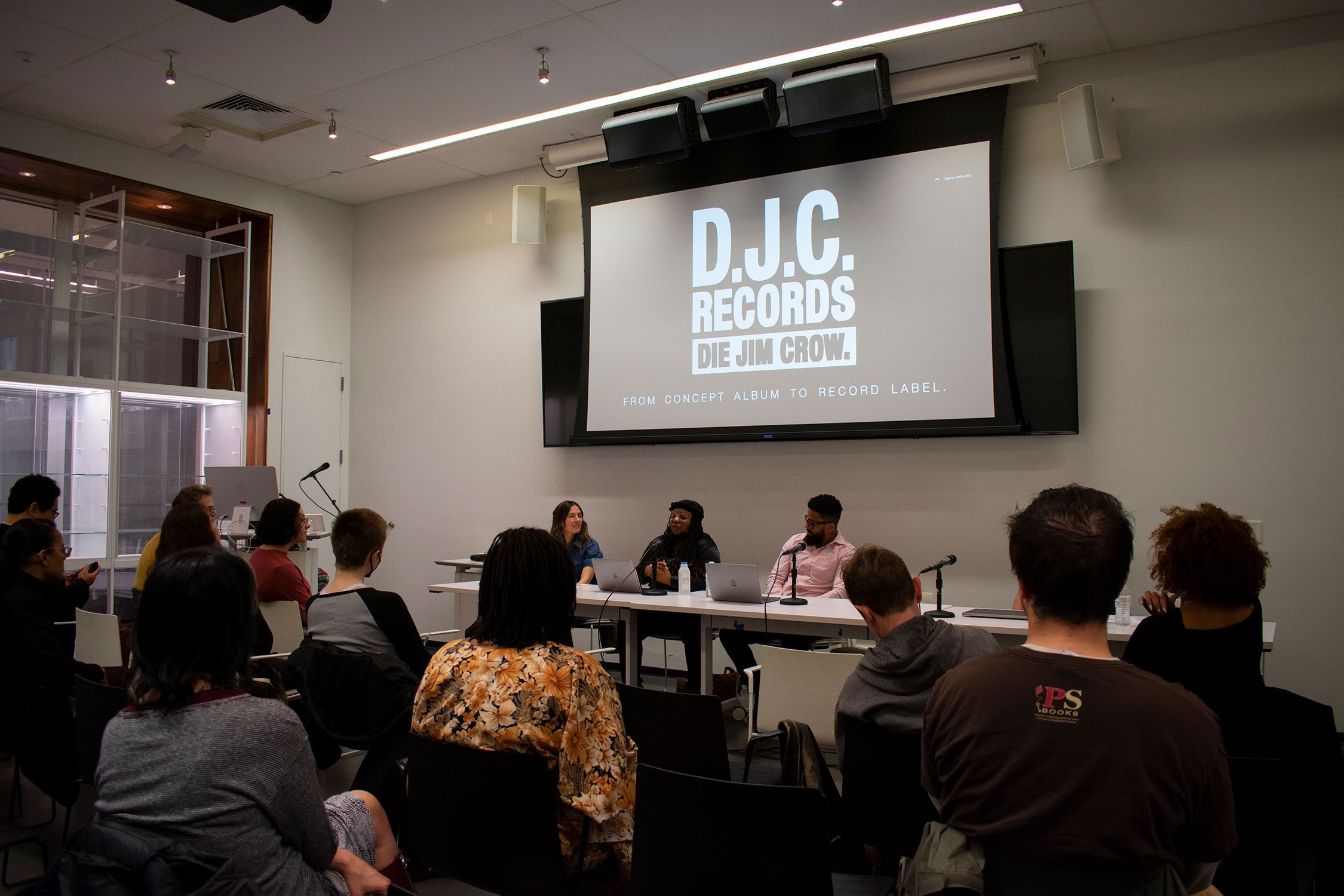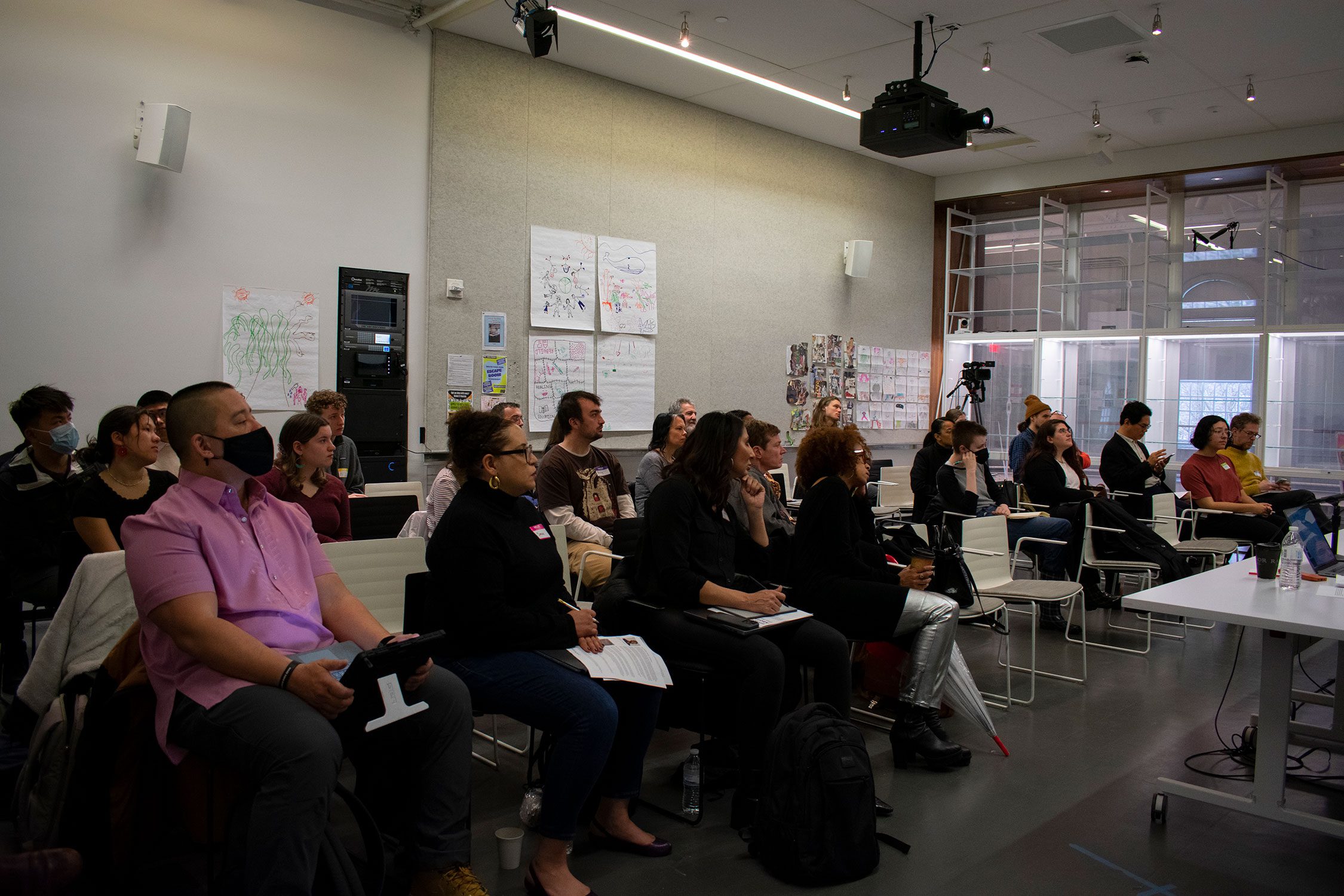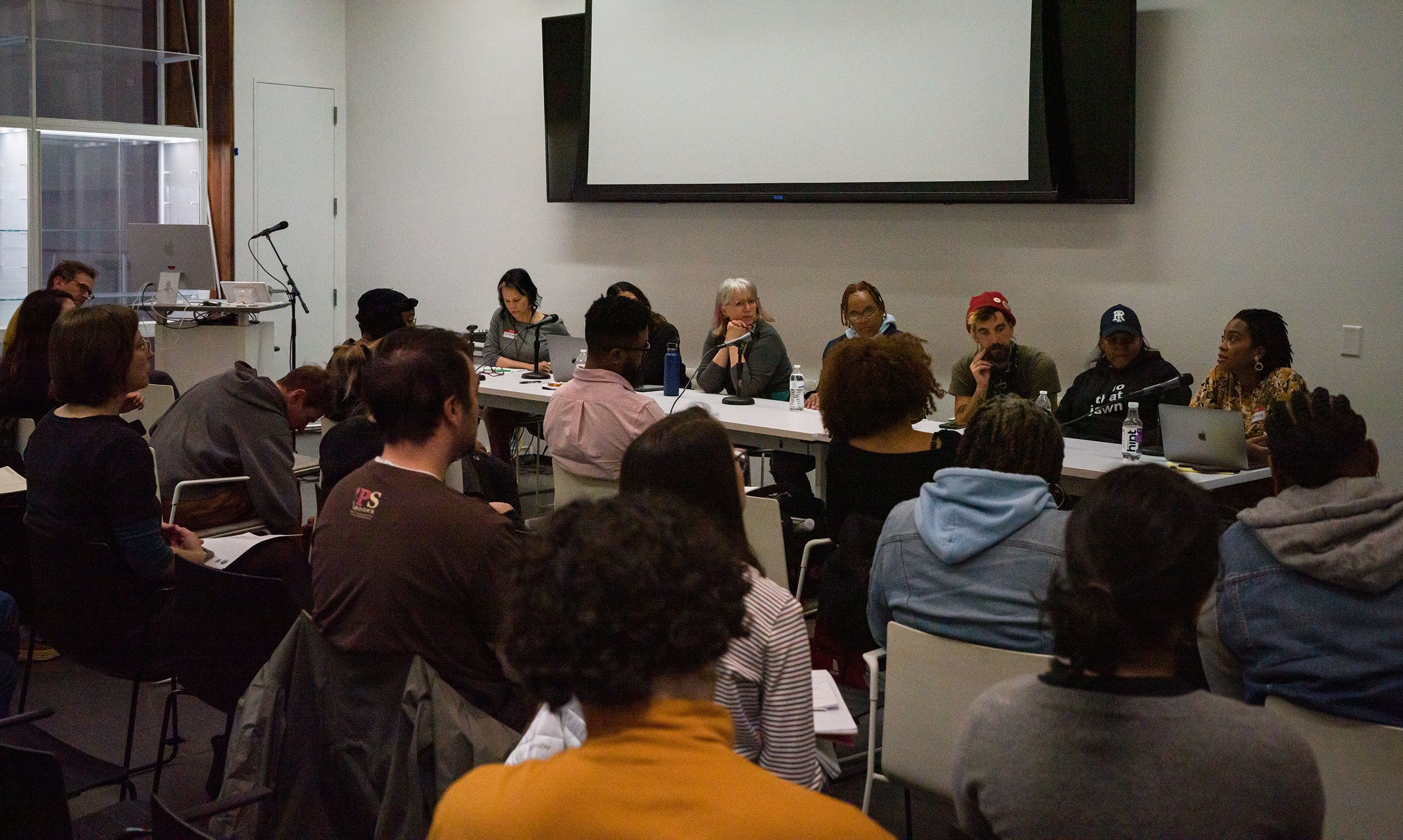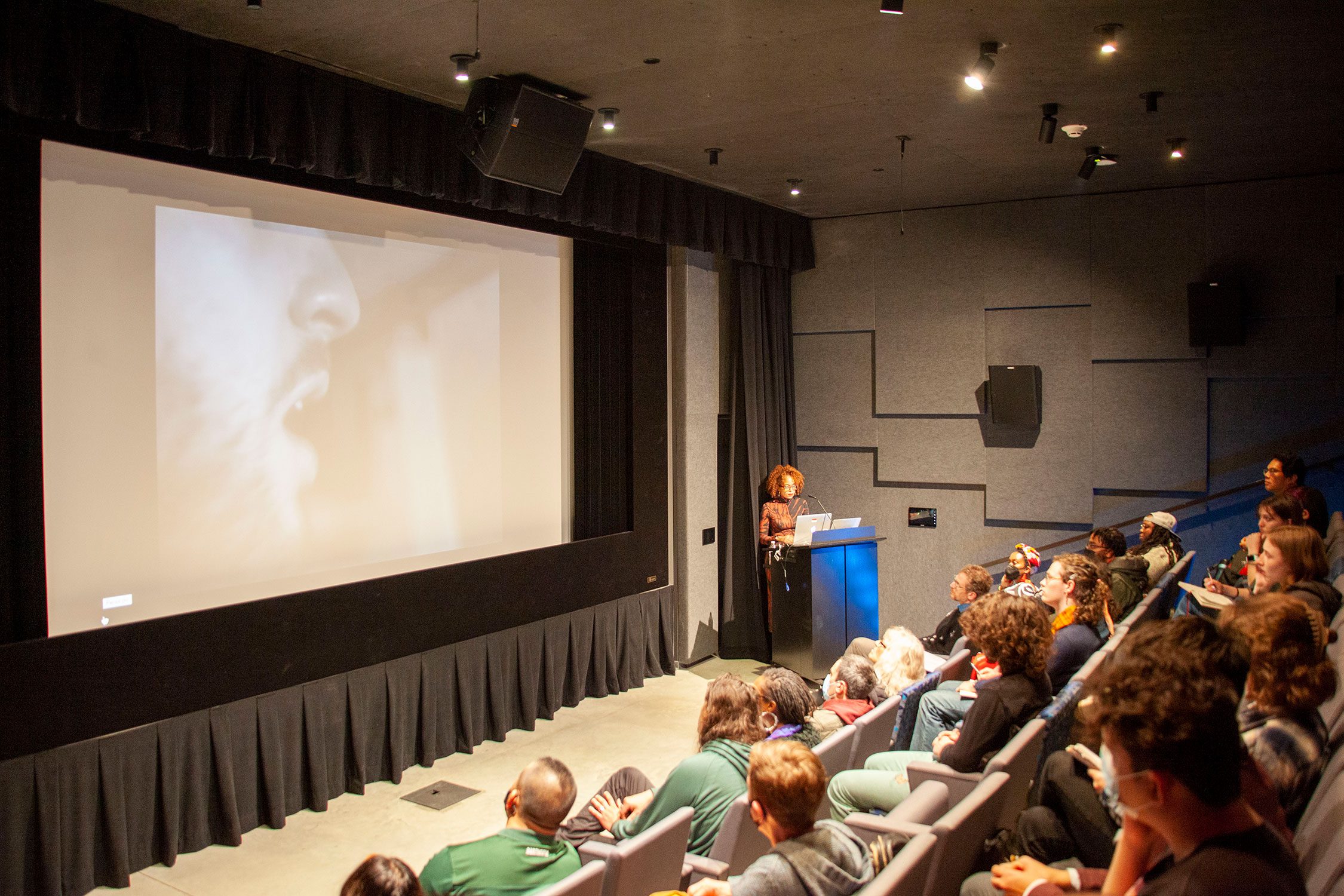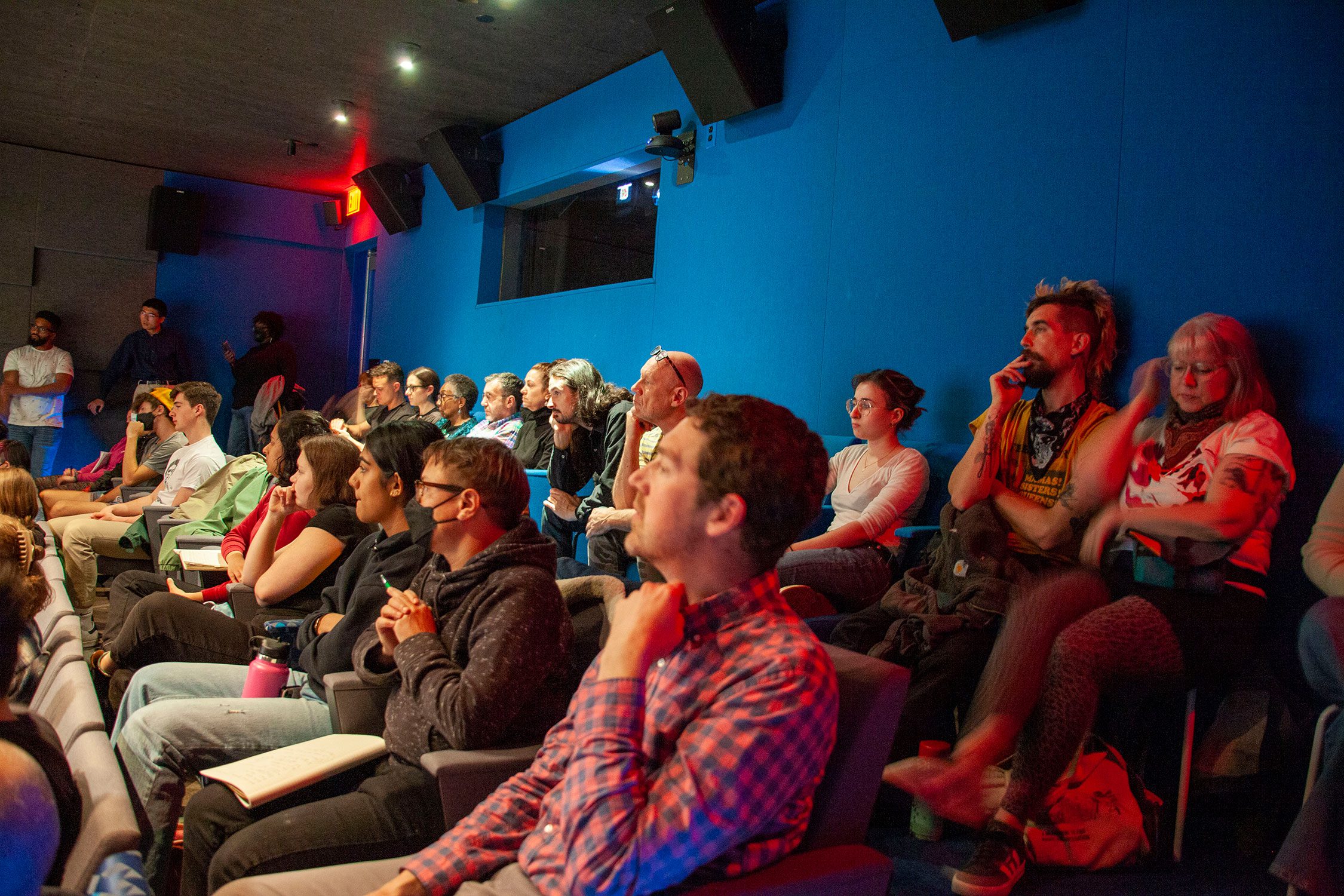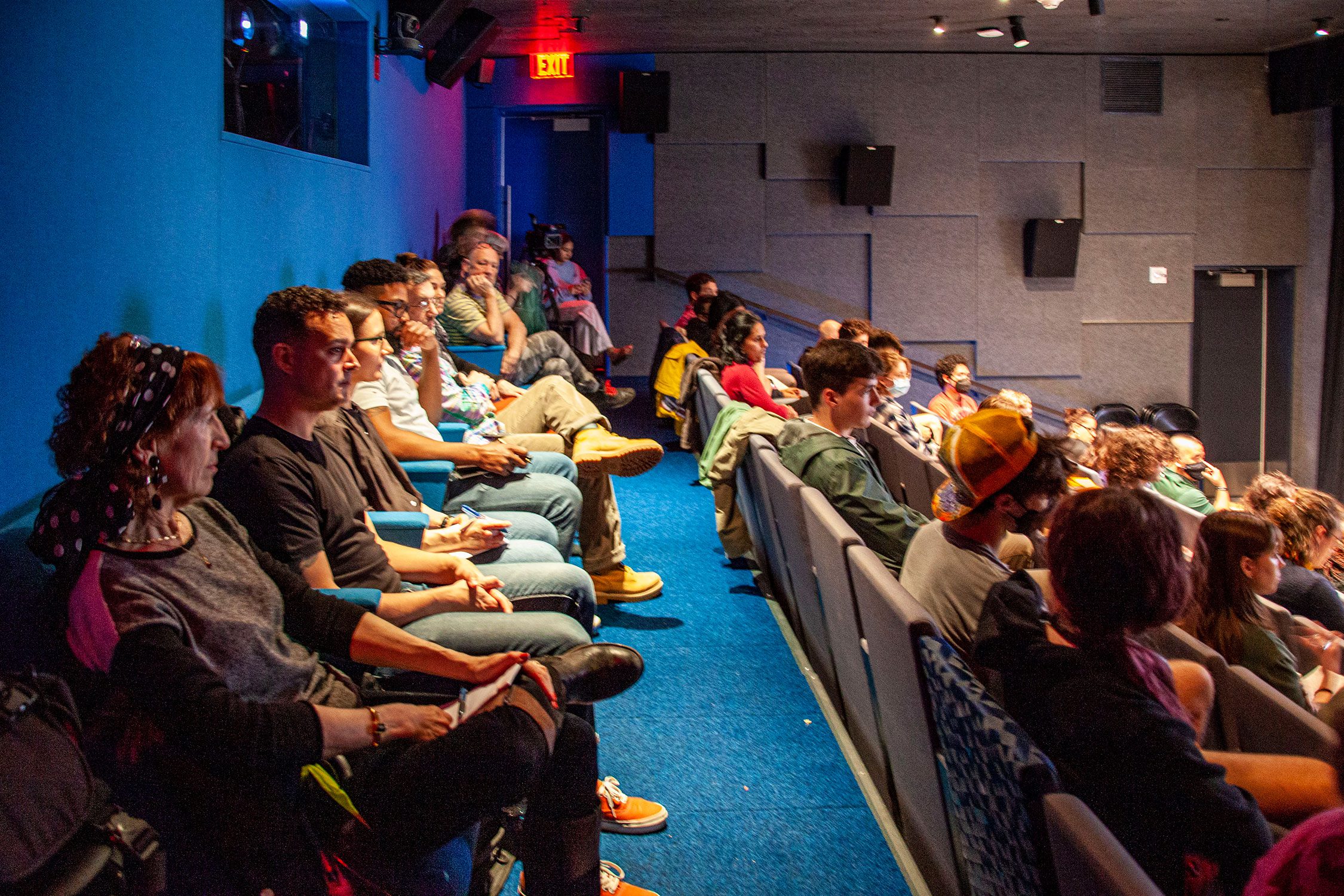Throughout the academic year, the Imagining Abolitionist Futures program has brought a range of figures to campus to discuss issues around mass incarceration and the carceral state—which refers to the many aspects of the criminal justice system, including police, courts, and prisons.The year-long Hurford Center initiative is focused on using the arts and humanities to challenge the carceral state in the U.S., and replacing traditional punishments with restorative and healing-based measures.
Rapper and producer of Die Jim Crow Records BL Shirelle, research group Think Tank, and Brett Story, director of the documentary The Prison in Twelve Landscapes, have all participated in Imagining Abolitionist Futures programming this academic year. The program is also hosting an artist-in-residence, Akeil Robertson, who is meeting with student groups, visiting classes, and attending and putting on public engagement events. In the upcoming fall semester, Robertson will conclude his visit by hosting a solo exhibit.
“The arts and humanities are vital tools for challenging the idea that the world we live in, in which the state routinely cages and dehumanizes people, is the only world possible,” said Gustavus Stadler, professor of English and Hurford Center director. “They remind us that the current system does not work, that in fact it reproduces the violence it purports to contain. The series was also meant to highlight all the work going on around this issue in Philly–work by activists and others that has been going on for many years.”
On March 23-24, Imagining Abolitionist Futures hosted its first academic symposium in VCAM. The event featured keynote speaker Dr. Nicole Fleetwood, activist, abolitionist, author, and professor at New York University. She discussed her book, Marking Time: Art in the Age of Incarceration. She additionally discussed some of the challenges most often faced by abolitionists and activists, including exhaustion and frustration, and how she personally deals with these challenges.
The student-led Students for Abolition, Liberation, and Transformation (SALT) provided some aid in organizing and hosting the event as well. Members Naren Roy ‘23 and Emma Schwartz ‘24 helped participate in a panel titled “Academia, Pedagogy, Activism,” alongside scholars of the field.
“They did a great job discussing the group, its history, and the state of abolitionism at Haverford, especially among students,” Stadler said. Additionally, Ilani Lark ‘26 and Shana Cohen-Mungan ‘24, members of Professor Lindsay Reckson’s Poetics of Abolition course, contributed by writing introductory statements for two panels.
Beyond the members of SALT, Stadler noted that students played a major role in contributing to the conference as a whole.
“The Hurford Center’s student staff have contributed in numerous, indispensable, sometimes less-than-glamorous ways–setting up and breaking down, running tech, making videos, putting up posters, social media, and so on,” he said, thanking the students for their contributions.
The symposium concluded with the opening reception of Let’s Get Free, an exhibit by People’s Paper Co-op. That group is focused on helping women re-enter society after incarceration, providing art as an outlet for ideas.
“It was amazingly inspiring to see the show with some of the artists present, and despite the heaviness of the issues, it felt like a celebration,” Stadler said.
Looking forward from the symposium, Imagining Abolitionist Futures will be hosting Reginald Dwayne Betts, an author, poet, lawyer, and advocate for criminal justice reform on April 13, at 7 PM in Jaharis Hall.

